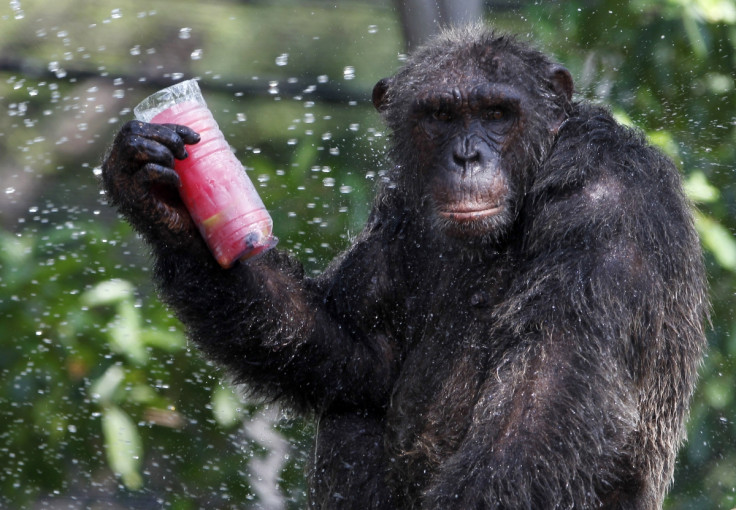Chimpanzee Violence 'Not Caused by Humans', Study Reveals

Violence among chimpanzees is not caused by humans, a new study has revealed.
According to the paper, published in the journal Nature, human encroachment and interference is not, as previous researchers have claimed, an influential factor of chimp-on-chimp aggression.
"Humans have long impacted African tropical forests and chimpanzees, and one of the long-standing questions is if human disturbance is an underlying factor causing the lethal aggression observed," explained co-author David Morgan, research fellow with the Lester E Fisher Centre for the Study and Conservation of Apes at Lincoln Park Zoo in Chicago.
A team of 30 ape researchers from the Lincoln Park Zoo assembled extensive data sets spanning five decades of research gathered from 18 chimpanzee communities. Results indicated that the majority of the 152 killings analysed was driven by what researchers called "adaptive fitness benefits."
"A key take-away from this research is that human influence does not spur increased aggression within or between chimpanzee communities," Morgan said.
"Communities are often divided into two broad categories depending on whether they exist in pristine or human disturbed environments.
"In reality, however, human disturbance can occur along a continuum and study sites included in this investigation spanned the spectrum. We found human impact did not predict the rate of killing among communities," he continued.
"The more we learn about chimpanzee aggression and factors that trigger lethal attacks among chimpanzees, the more prepared park managers and government officials will be in addressing and mitigating risks to populations particularly with changing land use by humans in chimpanzee habitat," Morgan concluded.
© Copyright IBTimes 2025. All rights reserved.






















